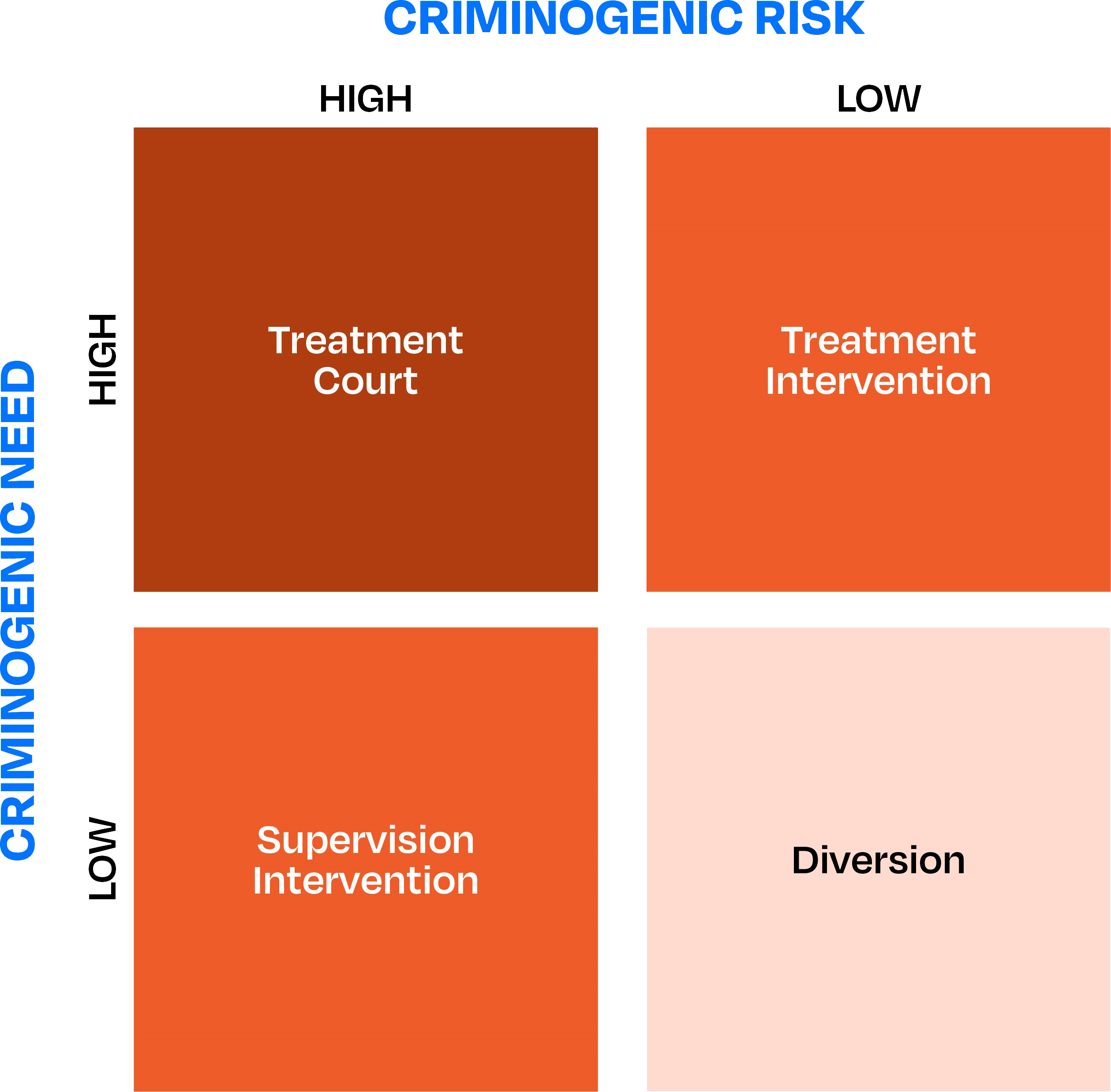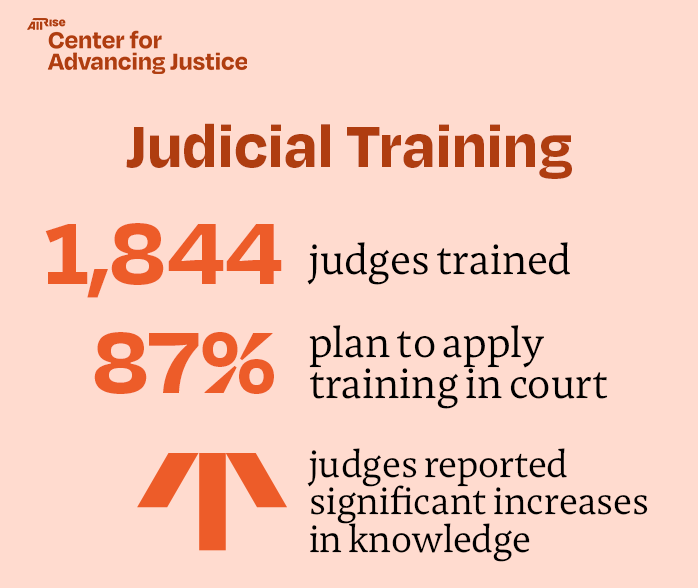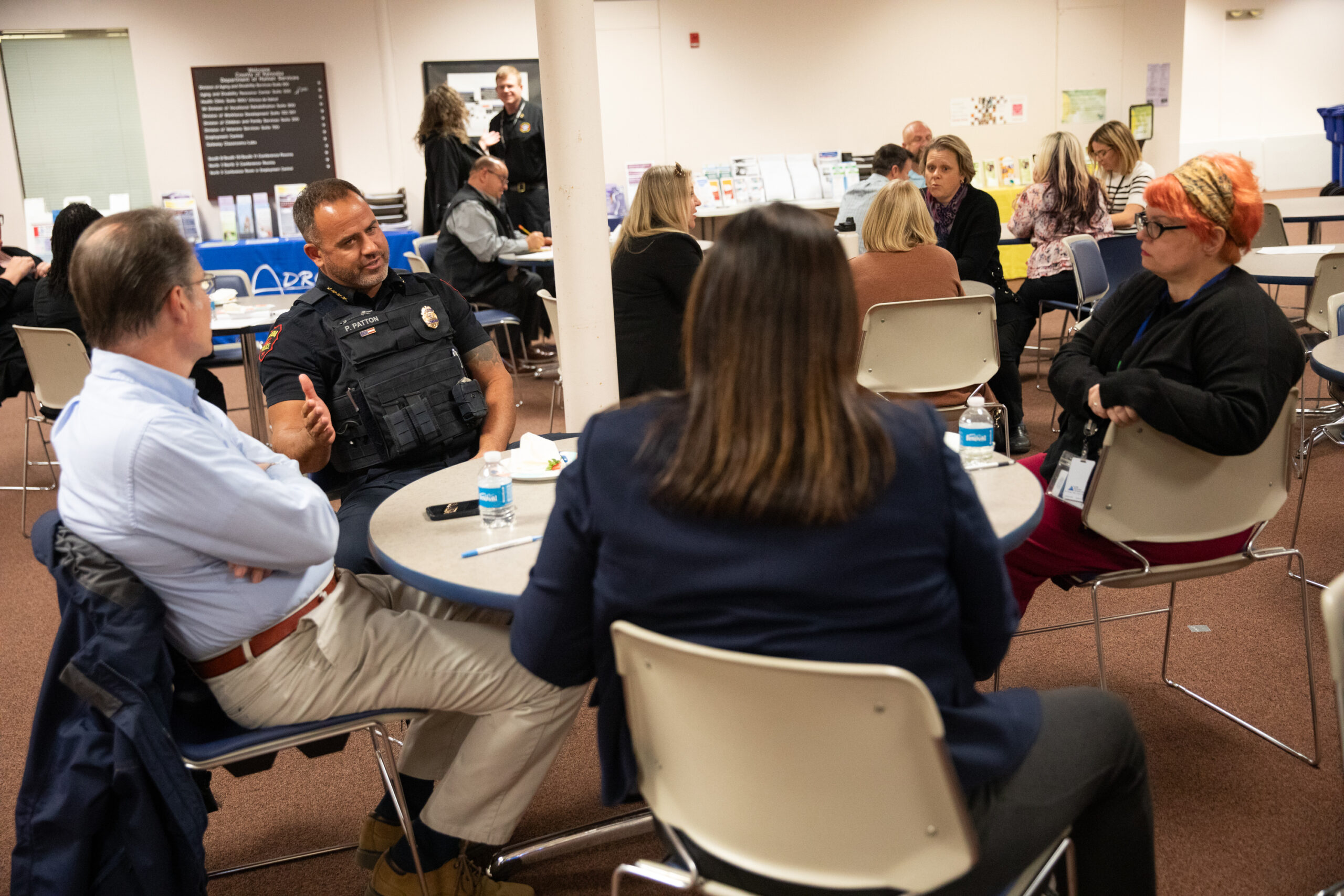)
The Center for Advancing Justice
We drive innovative responses to substance use and mental health disorders at every stage of the justice system.
Our Approach
Substance use, mental health, and co-occurring disorders are leading causes of justice involvement. We believe the justice system can deliver evidence-based responses that balance accountability with clinically appropriate treatment and support.
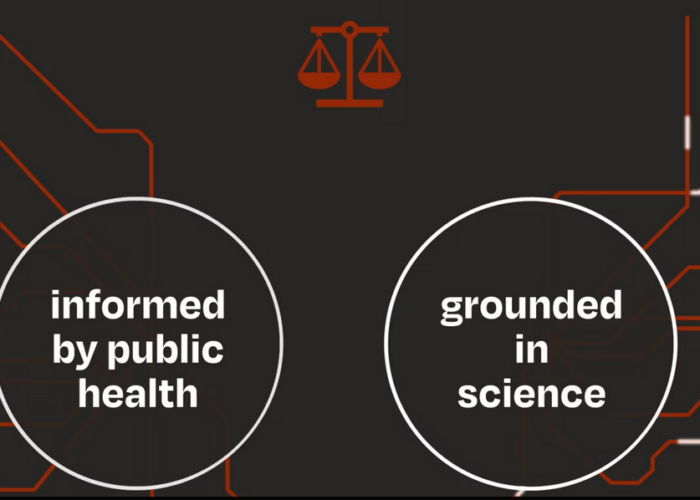
Impact at Every Stage of the Justice System
We advance effective interventions for individuals impacted by substance use and mental health challenges at every stage of the justice system, from first contact with law enforcement to corrections and community reentry.
The Sequential Intercept Model offers a framework for aligning community-based responses to substance use and mental health disorders with stages of justice system involvement. Its six “intercept points” represent critical opportunities to apply evidence-based interventions that reduce offending, promote recovery, and improve community health and safety. We have expertise in building effective treatment and supervision strategies at each of these intercepts.
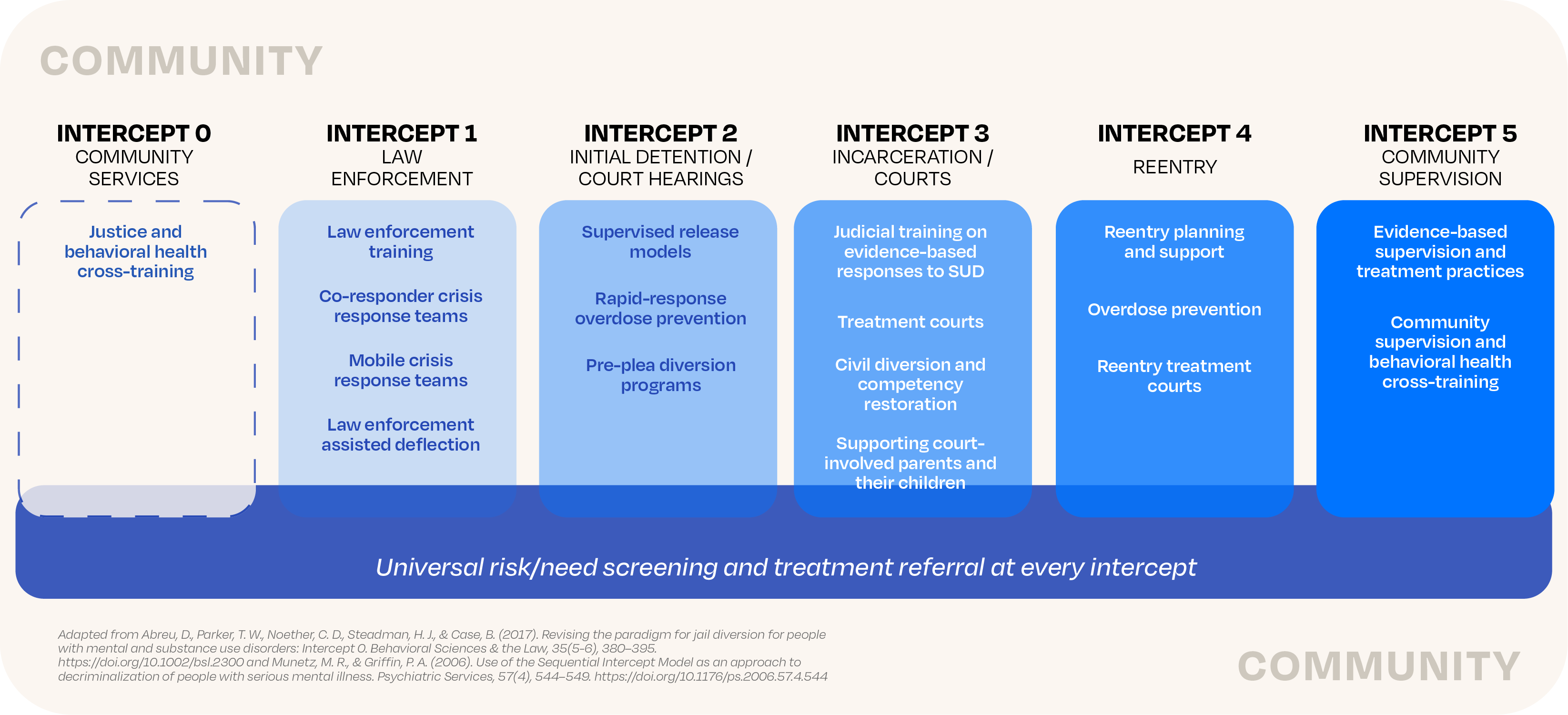
Customized Training and Curriculum Development
We support a wide range of justice system training needs
Our curriculum development experts help states and local jurisdictions develop in-person or virtual training for courts, attorneys, law enforcement, community supervision and corrections agencies, treatment providers, and other partners. Training curriculum is customized to meet your unique needs and built to ensure that the training content is practitioner-focused and actionable.
Examples of training opportunities include:
- Risk-need-responsivity in theory and practice
- Understanding substance use disorder and treatment
- Overdose prevention strategies for courts
- Using procedural fairness to support behavior change
- Evidence-based decision making
- Effective supervision practices
